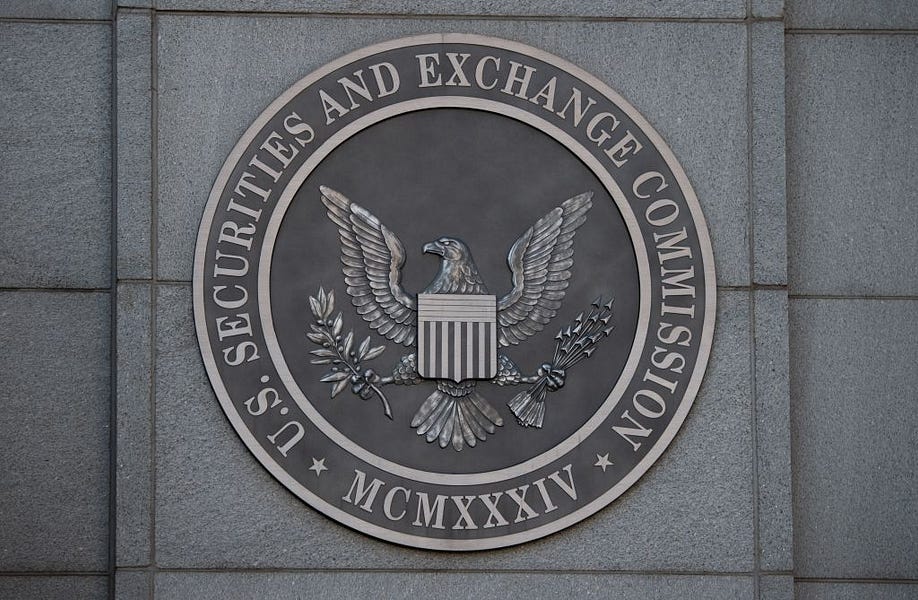The hot topic for policy nerds in Washington these days is “ESG,” which refers to environmental, social, and governance standards for corporations. Like I said, nerds.
Progressive nerds in D.C. are excited about the possibility that scores for companies on policies related to climate change and social justice particularly will provide a new tool to push companies leftward. Conservative nerds are afraid of exactly that, while nationalist nerds are looking for ways to replicate the technique for themselves.
Like most hot topics, ESG didn’t start in Washington but is being embraced here as part of its endless, yet always failed bid for currency and relevance. John F. Kennedy is still right: a city of Northern charm and Southern efficiency. Washington now has world-class restaurants and its beauty only grows, and I have grown very partial to the funky, friendly rhythm of life here. But this is still a place where things end up, not where they get started.
The idea of ESG scores is a California-via-Wall Street concept born in the 1990s out of the conscience pangs of progressive investors, including some very big fish in the tech and hedge fund worlds. If ratings firms could evaluate companies for profit potential, how about do-goodery? The reasoning then followed that since high standards on carbon emissions, diversity and inclusivity, and executive pay (the “G” for governance) would produce strong companies of great longevity, that these were actually good for the bottom line, too. Or that was the idea.
Standard & Poor’s, which you may remember from such hits as helping to crater the U.S. economy in 2008, launched its ESG index three years ago. The stated goal was to track the performance of stocks “meeting sustainability criteria” across the different sectors of the economy. But the real effect was to cause big corporations to dig deeper to conform to (or massage) the requirements in order to keep their stock price tippy top. That’s how you end up with an index about environmental sustainability that includes America’s largest oil company, bank, and consumer goods maker all on the list. The originators of the idea decades ago did not probably imagine that Exxon, J.P. Morgan and Procter & Gamble would one day be able to claim the ESG seal of approval. But even passing attention to American business will reveal that the biggest companies love costly complexities because they can afford to deal with them when their smaller competitors can’t.
When Facebook repeatedly asks for more government regulation of its business, what it probably really wants is the government to eliminate its competitors and future competitors that won’t have the means to comply. With ESG, the world’s biggest companies have found another way to impose a compliance tax on their competitors. They can afford to hire ratings firms that will be inclined to give favorable scores for whale-sized clients. These companies can collectively spend billions on compliance—or the appearance thereof—that insurgents can’t.
The journey of ESG from its idealistic vision to being yet one more piece of flotsam on the teeming sea of corporate complexities is very nearly complete, but one final length remains: the trip to Washington.
Washington is a place where a man will go on television to decry the damage that “woke” ESG requirements by one financial firm is doing to “little old ladies,” but not mention that his wife is a managing director at a competing firm that does the same “woke” stuff in order to help his family enjoy the occasional getaway. Washington is a place where another man with a wealthy wife would explain his use of his family’s private jet, including to accept an award for “climate leadership” as “the only choice for somebody like me who is traveling the world to win this battle.”
As is often the case in Washington, these individuals themselves are smart, but they badly overestimate how much smarter they are than other people. It ends up working out about the same as just being stupid, but takes a lot more work. The real power in Washington, though, is with the nerds; the grinds who work their way to the top of the middle of the administrative state, and who tend to care very deeply about policy concepts like ESG.
That’s how it came to pass that in March, the Securities and Exchange Commission proposed a new rule that would require publicly traded companies to make expansive disclosures about their carbon and climate-related activities. To try to make sure that ESG ratings are stringent, the agency last month added a rule that would require investment and ratings firms to disclose their specific standards.
Enforcement, to say the least, will be challenging. Any company worth its golden parachutes will immediately be as good at working around or climbing over these rules as they are the tax code and the rest of the barricades thrown up by enthusiastic policy nerds over the decades. But the barricades will keep out challengers, decreasing competition yet again.
Quoth the Goldberg: “complexity is a subsidy.”
The corporate disclosure rule is now in an extended period of public comment because of “significant interest.” This is funny if you work in Washington, because the comments usually come from people who are paid to make them. Agencies offer public comment periods on new rules and regulations in order to put some democratic window dressing on what is ultimately the exercise of raw executive power. But, companies, associations and pressure groups always want it said (especially to their bosses or donors) that they have been banging the drum. Public comment spamming is like putting John Bonham on blast and then lowering him to the bottom of a copper mine. They hit it really hard, but nobody ever hears it.
But this is Washington, so looking busy tends to be more valuable than trying to get stuff done, and is a heck of a lot less risky. Our little friend, ESG, has almost completed its trip through Washington and will soon join the other pieces of big-business friendly, anti-competitive flotsam clogging the shipping lanes of commerce. The nerds are very excited, but don’t disturb them. They’re busy writing public comments that will be uploaded but never read.







Please note that we at The Dispatch hold ourselves, our work, and our commenters to a higher standard than other places on the internet. We welcome comments that foster genuine debate or discussion—including comments critical of us or our work—but responses that include ad hominem attacks on fellow Dispatch members or are intended to stoke fear and anger may be moderated.
With your membership, you only have the ability to comment on The Morning Dispatch articles. Consider upgrading to join the conversation everywhere.